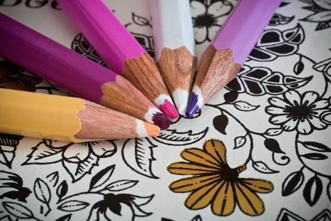4 Healthy Habits for Those with PTSD

There are many ways to cope with a PTSD diagnosis. While professional treatment is an important part of living well with mental illness, there are a few things you can do at home to make daily life easier. With the symptoms of PTSD and their impact on day to day activities, it is important to know how to cope with them on your own. Here are a few things you can do to benefit your daily life with PTSD.
Quality Sleep
Getting enough quality sleep is difficult for many people suffering from PTSD. Nightmares and insomnia prevent going to and staying asleep. There are a number of ways to handle this side effect but most effective will likely be an evening routine. Evening routines help train the brain when to feel tired, making it easier to fall into deep sleep and stay asleep. These routines can also be supplemented with melatonin.
An example of a nightly routine might be to turn screens off an hour before bed, read or do a quiet hobby for a half an hour, change into comfortable clothes, have a relaxing cup of herbal tea, and get into bed. Your brain will eventually learn that when the routine begins, it will soon be time to sleep.
Relaxing Hobbies
Having a hobby is a great and healthy method of reducing stress. Studies have shown that practicing a hobby you enjoy reduces stress while improving your mental state. It can act as a coping mechanism for when things get tough.
Given that PTSD has a high addiction rate due to self-medication, positive coping techniques are a necessary skill to have. Anything from crocheting or doodling to woodworking and fishing can be a positive way to limit your symptoms, reduce stress, and feel better.
Well-rounded Diet
A well-rounded diet is very hard to stick to. Most people have at least one nutritional deficiency as a result of their diet. However, certain deficiencies can negatively impact your mental state and exacerbate the symptoms of PTSD.
You may want to consider meeting with a nutritionist to identify where your nutritional gaps are and how to remedy them. You can also incorporate supplements if the problem will be too hard to correct with diet alone.
Enjoyable Exercise
Exercise is a very important part of mental well-being. The endorphins released when exercising can boost your mood, reduce stress, and decrease the symptoms of PTSD. Of course, it’s also important to select a form of exercise you enjoy.
Dreading your exercise of choice may actually increase your stress levels, negating the positive effects. Some fun forms of exercise might be swimming, tai chi, yoga, or hiking. Test out your options and pick one that makes you look forward to your workout.
Learning to cope with PTSD is a learning process. A counselor is an important part of learning to live with PTSD as is your support network. If you find yourself struggling, don’t try and manage on your own. Talk with your counselor or loved ones and get the support you need. In the meantime, work on cultivating these healthy habits. You may be surprised by how much of a difference they can make.
Image via Pixabay by the3cats